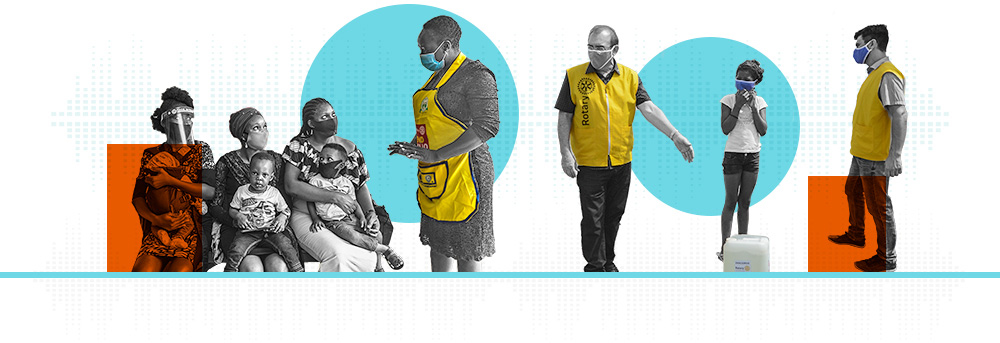
Bruce Aylward addressing Rotarians at the 2012 RI Convention in Bangkok, Thailand. Rotary Images
Why now?
Three things were driving the ministers of health of the world in declaring polio an emergency: first – on a positive note – polio eradication has reached a tipping point. India, the country that was responsible for almost half the world’s cases just two years ago, has now passed an entire year without reporting a case, providing incontrovertible evidence that polio can be eradicated anywhere.
However, and this is the ministers’ second point, polio cases unexpectedly – and alarmingly – surged late last year in the three remaining endemic countries, from where it would undoubtedly make a global comeback unless it is completely eradicated.
And third, the ministers saw further evidence that when polio spreads to polio-free places, it is increasingly deadly. In Tajikistan and Congo in 2010, and in China in 2011, polio paralyzed adults as well as children in these outbreaks with high fatality rates among the adults, reaching nearly 50 percent in some of these places. This is on top of other research that has recently shown that if we let this opportunity slip through our fingers, we will soon be seeing more than 200,000 children again being paralyzed by polio each year.
That’s not just a number, that’s children’s lives changed forever. Many of them would die. If there was a tsunami coming, with 200,000 children in its path, we would do everything we could to get the children out of harm’s way.
How can ordinary people help?
The first thing you can do is to sign the petition on the Global Poverty Project’s website to let world leaders know that you want them to make good on their promises to get polio finished. Presidents and prime ministers are, after all, answerable to their constituents. Follow End Polio Now on Twitter and Facebook to find out about other simple actions you can take. Then, if you want to get further involved, you can join your local Rotary club. RI is a fantastic organization – it was a couple of Rotarians that started the whole global movement to eradicate polio and they continue to campaign, raise money and volunteer in polio-infected countries today. You can also donate to Rotary’s PolioPlus Fund.
You can make a difference. It is everyone’s responsibility to see polio eradicated. Once we do, we will have achieved something extraordinary for all the world’s children, forever.
Read more of the interview on the Global Poverty Project‘s The End of Polio blog. Contribute now to help end polio.

Reblogged this on Polio Survivors & Associates.
LikeLike
One of the best ways to take action on this emergency is to share it with the public and government. Please join in the advocacy campaign that is supporting the work of Rotary and sharing the hard work or Rotary and the GPEI here: http://www.theendofpolio.com
LikeLike
Look I’m sorry but this communication tells less than half the story as to why the situation with polio is now a global health emergency. The key issue holding us back from winning the fight against polio is an acute shortage of funding. Check the financing page on the GPEI website (http://www.polioeradication.org/Financing.aspx). The BEST case scenario is that we will be able to raise about $1.6bil of the required $2.2bil for 2012-13 — more than a 25% shortfall. With a funding gap of over $600mil, many essential programs are on hold.
In May 2012, Sir Liam Donaldson, Chair of the Independent Monitoring Board (the group of experts that advises Rotary and our partners) said:
“Alarm bells should be ringing. The Initiative is being severely jeopardized by a major funding shortfall. It now plans to cancel crucial vaccination campaigns in 36 countries in 2012, due to lack of funds. This is an extreme and unacceptable risk. In particular, it would leave whole swathes of West Africa at high risk of importing polio from Nigeria. This would not only spell disaster for the countries affected; it could set this global endeavour back by many years, and vastly increase the eventual cost of achieving eradication.”
For a full copy of Sir Liam’s letter go to:
Click to access IMBletter_18May2012.pdf
Unless Rotarians are fully appraised of the seriousness of the situation, unless we understand that ‘business as usual’ is going to see us LOSE the fight, how can we expect our 1.2 million members to use their significant influence and find ways to fill the funding gap?
Rob Byrne
Rob’s Bike Ride to End Polio Now
LikeLike
A migos, sigamos apoyando a la Fundacion Rotaria y el programa sobre erradicaciòn de la Polio, con afecto Rotario Jorge Vega D. GDN Distrito 4320
LikeLike